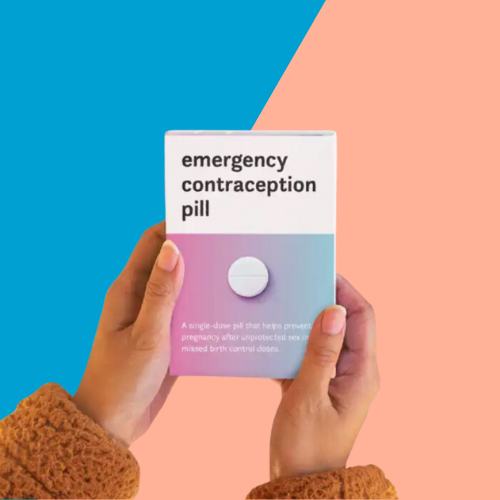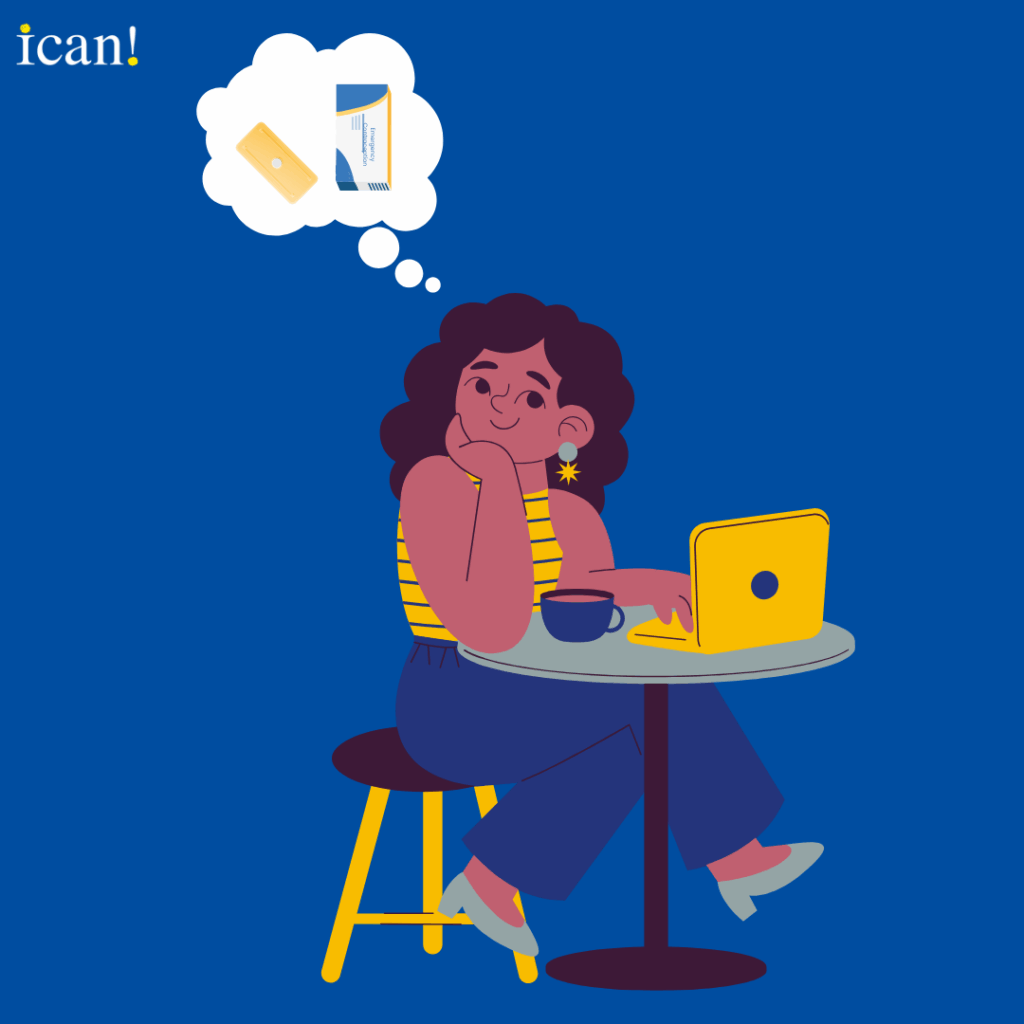Birth Control Series: Emergency Contraception

No matter how careful we try to be, we can’t always avoid slip-ups in our sex-having lives. Thankfully, there are emergency options. One is an intrauterine device (IUD) that’s placed by a healthcare provider, others include pills you take by mouth. If a pill is your preferred choice of emergency contraception, keep reading for more information so you can be prepared with what to do to avoid an unplanned pregnancy after unprotected sex.
What is Emergency Contraception? How does it work?
Also called the “morning-after pill”, emergency contraception (EC) is a type of birth control used after unprotected sexual intercourse. That is, sex without any method of birth control, or with a birth control method that failed (e.g. you later notice the condom used slipped/broke or you missed a birth control pill).
Might be more clear to say levonorgestrel (Plan B and its generic equivalents) and ulipristal acetate ( Ella) are two types of emergency contraceptive pills available. They both work to stop the ovaries from releasing an egg until sperm are no longer active. Levonorgestrel does this by mimicking a hormone called progesterone naturally found in the body. This tricks your body into thinking it’s pregnant and stops the release of an egg. This is the same hormone used in many birth control pills (at lower doses). Ella works by suppressing progesterone which delays ovulation long enough for sperm to die before an egg is released. It also changes the lining of the uterus, making it difficult for a fertilized egg to implant and start a pregnancy. Though it may prevent pregnancy, emergency contraception does not prevent the spread of HIV, syphilis, gonorrhea, chlamydia and other sexually transmitted infections.
How to get emergency contraception
Morning-after pills are 100% legal and available to anyone regardless of age. Levonorgestrel is probably the easiest to get because it is available over the counter without a prescription. Brand name (e.g. Plan B, My Choice) and generic versions are available at drugstores, grocery stores, and even on Amazon. Ella is the only brand that requires a prescription. Cost ranges from about $10-$50 depending on which version you get.
If you have private insurance, there’s a good chance you have coverage; if you have public insurance -Medicaid, emergency contraception pills or IUDs are 100% covered and require no out of pocket cost. In Illinois, if you cannot afford the cost of emergency contraception, there may be an organization or health clinic, like Planned Parenthood, in the area that will provide Plan B for free or at a cheaper rate. Lastly, if you received an Illinois HFS Sexual Assault Emergency Treatment Program (ISAETP) Authorization for Payment Voucher at a hospital, you can use the voucher to obtain emergency contraception at no charge to you. If you are younger than 17 and did not receive EC at the hospital, you’ll have to go to a health center or private health provider for a prescription.
Will it mess with my current birth control method (i.e. pill, patch, ring, etc.)?l
Levonorgestrel can be taken with birth control pills without any issues. If you missed more than two doses of your birth control pill, resume your birth control as scheduled as soon as possible.
Ella is a little different. Research suggests that using hormonal birth control within 5 days of taking Ella could make both medications less effective. So, hold off on starting or resuming using hormonal contraceptives for at least 5 days after taking Ella.
Who shouldn’t use emergency contraception?
Emergency contraception pills are not the same as mifepristone (Mifeprex, the abortion pill). That medication terminates an established pregnancy—meaning the fetus has already attached to the uterus and started developing. Emergency contraception reduces the risk of a pregnancy before it happens. It will not end a pregnancy that has implanted, and it will not cause an abortion if you are already pregnant. Taking the emergency contraceptive pill will not affect your chances of getting pregnant in the future.
How to use emergency contraception
Levonorgestrel is most effective if taken within 3 days after unprotected sex, but it can be used up to 5 days to help prevent pregnancy. Ella can be taken up to 5 days after sex. Effectiveness decreases over time so take it sooner to increase the chance of preventing pregnancy. And no, even though it’s called the “morning-after” pill, you don’t have to wait until the next day to take it. As with any drug, be sure to follow the directions on the packaging.
Per the FDA, the morning-after pill is meant to be used as backup contraception only, it is not for routine contraceptive use. If you are looking for a primary method of birth control, take our free birth control quiz to see which option may be best for you, or check out ICAN!’s Birth Control Options page for more information!
Regardless of which EC you choose, use a barrier method of protection such as diaphragms or condoms with each sexual encounter until your next period—even if you’ve resumed taking your birth control pills. If you choose levonorgestrel EC pills, for the next 7 days, you should also use a barrier method (condoms, diaphragm with spermicides) along with your regular birth control method or not have sexual intercourse. If you chose Ella, you need to wait until 5 days after taking Ella before resuming your hormonal birth control method (pill, patch, ring, shot). You should use a barrier method (or not have sexual intercourse) until your next menstrual period. Keep in mind that your next period may be early or late. It could also be heavier than usual. This is normal. If you don’t get your next period for more than 7 days after the expected date, or it is very light, you should take a pregnancy test. Always talk to a healthcare provider if you are unsure.




